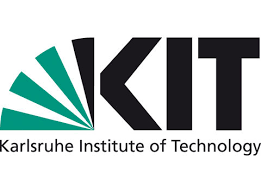Karlsruhe Institute of Technology: KIT goes on the diversity offensive
With the adoption of a “Diversity Statement”, the Karlsruhe Institute of Technology (KIT) has placed the handling of the diversity of its almost 10,000 employees on a new basis. In a holistic approach that sees all aspects of diversity as added value, the focus is on developing everyone’s performance potential. Strategic priorities are set in equal opportunities and internationalization. The President of the KIT, Professor Holger Hanselka, also personally sets an example for diversity: As patron, he supports the Karlsruhe Christopher Street Day (CSD) on June 4, 2022.
“Diversity, openness and transparency are values at KIT that we orient ourselves to every day. Like our pluralistic society as a whole, science thrives on mutual respect and the acknowledgment of differences. With the recently adopted Diversity Statement of the KIT, we want to enable individual life plans and situations even more than before and develop even more diversity competence,” says Professor Holger Hanselka, President of the KIT. “The diversity of our employees and students is our strength. Diversity drives us forward – in research, teaching and innovation as well as in social interaction. Therefore, as President of KIT, it is a great honor for me to
The Diversity Statement of the KIT bundles existing and future activities: In the field of action “Enable individual life plans and take life situations into account”, offers for the compatibility of private life and work are the focus. This is about, for example, mobile working, childcare and caring for relatives – but also about the participation of people with visual impairments, which the Center for Digital Accessibility and Assistive Technologies ACCESS@KIT supports. In the field of action “Create transparent and fair framework conditions”, guidelines and voluntary commitments describe what requirements there are for permanent contracts or what plannable career paths at KIT look like. Furthermore, systematic and transparent personnel selection procedures help to optimally plan one’s own career at KIT.
Focus on equal opportunities and internationalization
The KIT Diversity Strategy sets strategic priorities in equal opportunities and internationalization. The efforts to strengthen KIT-wide equal opportunities for men and women are reflected, among other things, in three projects that have been carried out since 2019 as part of the Excellence Strategy of KIT: As part of “Gender Equity 1”, a total of 14 subject-specific equal opportunities activities have been carried out since autumn 2021 promoted. These range from recruiting measures for different career stages and the development of networks for female scientists to the analysis and optimization of working conditions from the point of view of equal opportunities. In contrast, the focus of “Gender Equity 2” is on recruiting female professors and networking female scientists. The ambitious “100 professorships program” envisages a proportion of 40 percent women among the newly appointed professors. This should contribute significantly to ensuring that at least every fifth professorship at KIT will be held by a woman by 2030.
The second focus of the Diversity Statement is internationalization. People from more than 120 countries research, teach, work, and study at KIT. The KIT emphasizes the numerous added values of this cultural diversity in its internationalization strategy adopted in 2018. In addition, KIT assumes its social responsibility beyond national borders, for example in the European alliances Eucor and EPICUR. Extensive welcome and integration offers for international researchers and students are therefore a natural part of the new diversity strategy.
In order to make its appreciation of the topic of diversity visible to the outside world, the KIT will also shortly join the employers’ initiative “Charter of Diversity” founded in 2006. By signing the charter, employers declare that they will create or promote equal opportunities for their employees, regardless of nationality, ethnic origin, world view, disability, age or sexual orientation.

